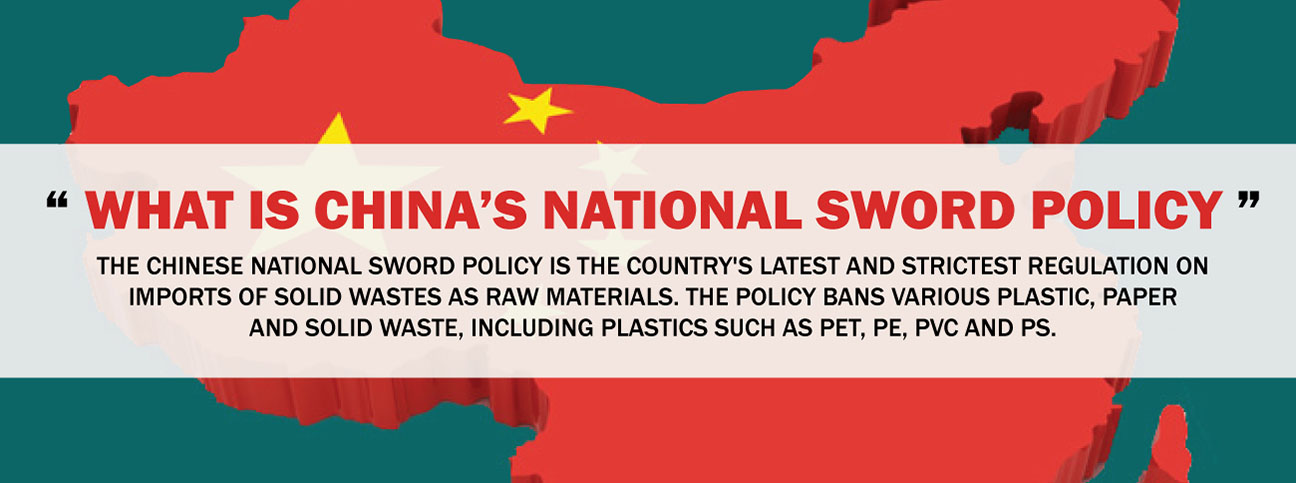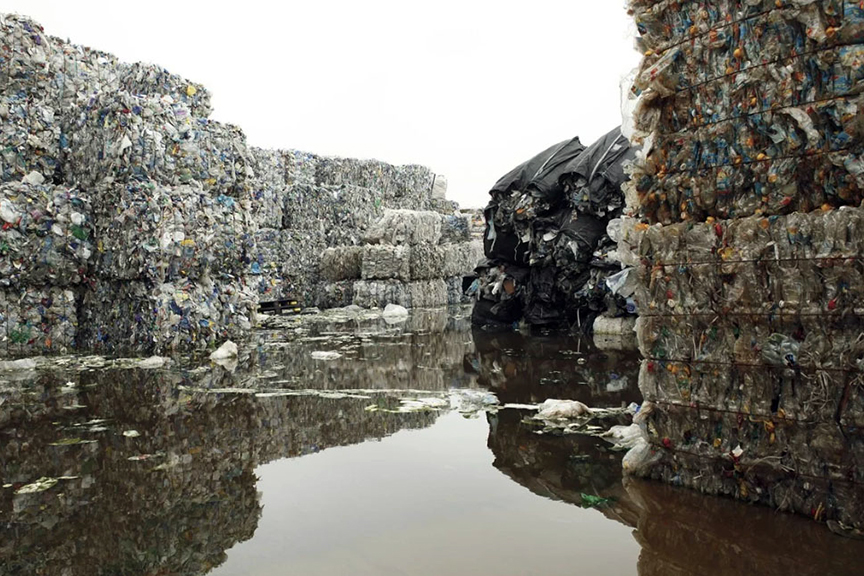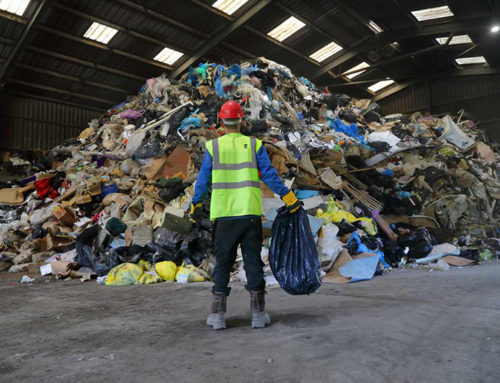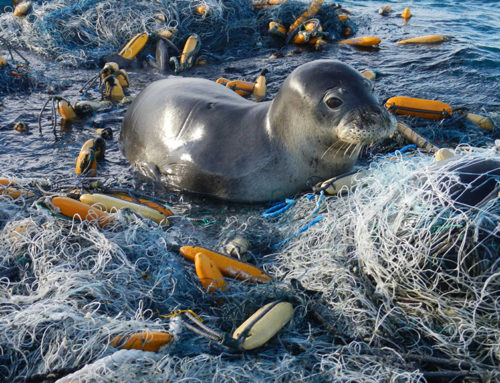In 2018, China’s “Operation Sword” sent shockwaves through the global recycling industry. This policy marked a turning point as China, once the world’s largest importer of plastic waste, implemented strict restrictions on imports of recyclables. The consequences were felt far and wide, particularly in the United States, where a surge in waste headed for landfills posed a significant environmental challenge. However, it also spurred the rise of recycling and ink remanufacturing industries, offering innovative solutions to combat the mounting waste crisis.
China’s Operation Sword, officially known as the “National Sword” policy, was introduced as part of the country’s broader environmental reforms. It aimed to address environmental concerns and combat the pollution associated with the processing and disposal of imported plastic waste. Under this policy, China significantly reduced its acceptance of foreign plastic waste, including used printer cartridges, causing a major disruption in global recycling markets.

The sudden closure of the Chinese recycling market left many countries, including the United States, grappling with a growing problem: what to do with their mounting plastic waste. With limited options for exporting recyclables, a significant amount of plastic, including printer cartridges, began to accumulate in U.S. landfills. This influx of waste raised concerns about environmental pollution, resource depletion, and the sustainability of current waste management practices.
Faced with a burgeoning waste crisis, the United States had to reassess its approach to plastic waste management. The situation underscored the need for domestic recycling and remanufacturing solutions. Recycling initiatives gained momentum as communities and businesses recognized the importance of diverting recyclables away from landfills.
One industry that particularly benefited from the changing landscape was the ink cartridge remanufacturing sector. Remanufactures, who had been going strong since the turn of the century, seized the opportunity to source domestically discarded printer cartridges, previously exported to China. This shift allowed them to access a reliable supply of recycled plastic materials, which could be repurposed to create remanufactured ink cartridges.
The shift towards domestic recycling and remanufacturing yielded significant environmental benefits. It reduced the carbon footprint associated with shipping waste to distant locations, curtailed pollution risks, and helped conserve valuable resources. Additionally, remanufactures embraced sustainability by producing eco-friendly ink cartridges at competitive prices.
The celebration of remanufactured OEM (Original Equipment Manufacturer) ink cartridges as a sustainable solution for reducing plastic waste and conserving resources has faced a significant challenge in recent years. The influx of third-party clone and compatible ink cartridges flooding the market, particularly through online sales platforms like Amazon, has disrupted the remanufacturing industry. These third-party ink cartridges, often recognized as knock-offs – called clones or compatibles, have impacted the remanufacturing sector, contributed to landfill waste. Amazon has played a pivotal role in the proliferation of these third-party ink cartridges. These products are often featured prominently due to their greater profit margins for Amazon. As a result, the visibility of US remanufactured ink cartridges, which provide a more sustainable and eco-friendly alternative, has been overshadowed and marginalized.
Printer manufacturers have also taken steps to protect their market share and prevent the use of third-party cartridges. Some have implemented software features in their printers that detect and block non-OEM cartridges. This tactic not only limits consumer choice but also perpetuates the dominance of new OEM cartridges, contributing to higher costs for consumers and the environment.

US ink remanufacturing of OEM ink cartridges represent a sustainable and cost-effective alternative. These cartridges are essentially the original manufacturer’s ink cartridges, carefully remanufactured and tested for quality. They are factually the OEM ink cartridge, designed to work seamlessly with their specific printer models, eliminating compatibility issues and ensuring reliable performance. Importantly, they do not face the same software blockades as third-party cartridges, offering a hassle-free printing experience.
In the wake of China’s “Operation Sword” and the resultant shift towards retaining plastic waste and used ink cartridges within the United States, consumers have been presented with opportunities to actively participate in recycling initiatives.
Planet Green Recycle emerged as a champion of sustainability by providing a platform for individuals and organizations to recycle ink cartridges conveniently and even earn funds for their chosen causes. Planet Green Recycle offers a straightforward and cost-free method for consumers to recycle their used ink cartridges.
Free Recycling Program: Planet Green Recycle provides consumers with a simple and cost-free means of recycling their ink cartridges. This initiative not only reduces landfill waste but also contributes to the responsible disposal of toxic materials found in some printer cartridges.
Fundraising Opportunities: One distinctive aspect of Planet Green Recycle’s program is its fundraising component. Organizations, including schools, non-profits, and community groups, can enroll in recycling programs that distribute funds to their causes based on the volume of ink cartridges collected and recycled. This offers a unique opportunity for individuals and organizations to support their missions while actively participating in environmental preservation.
Environmental Impact: By encouraging the recycling of ink cartridges, Planet Green Recycle aids in reducing the flow of plastic and toxic waste into U.S. landfills. This not only minimizes long-term environmental damage but also conserves valuable resources and reduces carbon emissions associated with waste transportation.
Empowering Individuals and Organizations:
Planet Green Recycle‘s recycling program not only benefits the environment but also empowers individuals and organizations to make a positive impact. By simply participating in the program, consumers can contribute to the reduction of plastic waste and toxic materials, aligning their actions with sustainable practices.
The retention of plastic waste, including ink cartridges, within the United States, coupled with the influx of third-party ink cartridges, has contributed to a significant environmental challenge. Annually, an estimated 375 million empty ink cartridges find their way into U.S. landfills. This troubling statistic underscores the urgent need for improved recycling practices and consumer choices to protect the environment for future generations.
Ink Cartridge Waste Statistics:
- 375 Million Cartridges Entering Landfills Annually: According to data from various environmental organizations and recycling initiatives, approximately 375 million empty ink cartridges are discarded in U.S. landfills each year. This staggering figure highlights the substantial environmental impact of printer cartridge waste.
- Minimal Recycling Rates: Unfortunately, the recycling rate for ink cartridges remains disappointingly low. Despite the potential for recycling, a significant portion of used cartridges ends up in landfills, where they contribute to the accumulation of non-biodegradable plastic waste.
- Environmental Consequences: The disposal of ink cartridges in landfills has several negative consequences for the environment. These cartridges are predominantly made of plastic materials that take hundreds to thousands of years to decompose. During this extended degradation process, they can release harmful toxins into the soil and groundwater, posing a threat to ecosystems and human health.
Consumer Choice for a Sustainable Future:
In the face of this concerning waste issue, consumers hold the power to make a significant difference by choosing responsible and sustainable practices. Consumers have the choice to participate in recycling programs specifically designed for ink cartridges. By actively participating, consumers can significantly reduce the number of cartridges entering landfills. Choosing to recycle empty ink cartridges rather than disposing of them in landfills demonstrates a commitment to environmental stewardship and the decisions consumers make today have a direct impact on the world that future generations will inherit.






